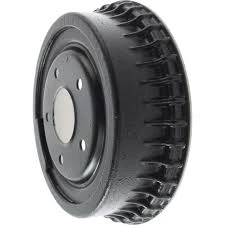
-
 Afrikaans
Afrikaans -
 Albanian
Albanian -
 Amharic
Amharic -
 Arabic
Arabic -
 Armenian
Armenian -
 Azerbaijani
Azerbaijani -
 Basque
Basque -
 Belarusian
Belarusian -
 Bengali
Bengali -
 Bosnian
Bosnian -
 Bulgarian
Bulgarian -
 Catalan
Catalan -
 Cebuano
Cebuano -
 Corsican
Corsican -
 Croatian
Croatian -
 Czech
Czech -
 Danish
Danish -
 Dutch
Dutch -
 English
English -
 Esperanto
Esperanto -
 Estonian
Estonian -
 Finnish
Finnish -
 French
French -
 Frisian
Frisian -
 Galician
Galician -
 Georgian
Georgian -
 German
German -
 Greek
Greek -
 Gujarati
Gujarati -
 Haitian Creole
Haitian Creole -
 hausa
hausa -
 hawaiian
hawaiian -
 Hebrew
Hebrew -
 Hindi
Hindi -
 Miao
Miao -
 Hungarian
Hungarian -
 Icelandic
Icelandic -
 igbo
igbo -
 Indonesian
Indonesian -
 irish
irish -
 Italian
Italian -
 Japanese
Japanese -
 Javanese
Javanese -
 Kannada
Kannada -
 kazakh
kazakh -
 Khmer
Khmer -
 Rwandese
Rwandese -
 Korean
Korean -
 Kurdish
Kurdish -
 Kyrgyz
Kyrgyz -
 Lao
Lao -
 Latin
Latin -
 Latvian
Latvian -
 Lithuanian
Lithuanian -
 Luxembourgish
Luxembourgish -
 Macedonian
Macedonian -
 Malgashi
Malgashi -
 Malay
Malay -
 Malayalam
Malayalam -
 Maltese
Maltese -
 Maori
Maori -
 Marathi
Marathi -
 Mongolian
Mongolian -
 Myanmar
Myanmar -
 Nepali
Nepali -
 Norwegian
Norwegian -
 Norwegian
Norwegian -
 Occitan
Occitan -
 Pashto
Pashto -
 Persian
Persian -
 Polish
Polish -
 Portuguese
Portuguese -
 Punjabi
Punjabi -
 Romanian
Romanian -
 Russian
Russian -
 Samoan
Samoan -
 Scottish Gaelic
Scottish Gaelic -
 Serbian
Serbian -
 Sesotho
Sesotho -
 Shona
Shona -
 Sindhi
Sindhi -
 Sinhala
Sinhala -
 Slovak
Slovak -
 Slovenian
Slovenian -
 Somali
Somali -
 Spanish
Spanish -
 Sundanese
Sundanese -
 Swahili
Swahili -
 Swedish
Swedish -
 Tagalog
Tagalog -
 Tajik
Tajik -
 Tamil
Tamil -
 Tatar
Tatar -
 Telugu
Telugu -
 Thai
Thai -
 Turkish
Turkish -
 Turkmen
Turkmen -
 Ukrainian
Ukrainian -
 Urdu
Urdu -
 Uighur
Uighur -
 Uzbek
Uzbek -
 Vietnamese
Vietnamese -
 Welsh
Welsh -
 Bantu
Bantu -
 Yiddish
Yiddish -
 Yoruba
Yoruba -
 Zulu
Zulu
otr brake drums
Understanding OTR Brake Drums Importance and Maintenance
In the world of heavy machinery and oversized vehicles, Off-The-Road (OTR) vehicles play a crucial role across various industries, including construction, mining, agriculture, and more. These robust machines, such as bulldozers, dump trucks, and loaders, require specialized parts that can withstand demanding conditions. Among these components, brake drums are critical for ensuring safety and efficiency.
The Role of Brake Drums
Brake drums are essential components in the braking systems of OTR vehicles. They are typically made from cast iron or similar materials, designed to endure high temperatures and considerable stress during operation. When the brakes are applied, brake shoes push against the inside of the drum, generating friction that slows down or stops the vehicle. Given the weight and size of OTR vehicles, the performance of brake drums is vital for both safety and control.
Importance of Material Quality
The effectiveness of brake drums directly correlates with the materials used in their construction. High-quality materials not only ensure durability and resistance to wear but also improve the thermal performance of the brake system. This is particularly important in OTR applications, where brakes are frequently applied in extreme conditions, leading to significant heat buildup. Manufacturers often use advanced metallurgy techniques to enhance the strength and reliability of brake drums, which can ultimately lead to better performance and longer service life.
Potential Issues with Brake Drums
Despite their importance, OTR brake drums can face a variety of issues that can affect their performance and safety. Common problems include
1. Cracking Due to the intense heat and stress, brake drums can develop cracks over time. Cracks compromise the integrity of the drums and can lead to catastrophic failure.
2. Warping Prolonged exposure to high temperatures can cause brake drums to warp, resulting in uneven surfaces that lead to premature brake wear and ineffective stopping power.
3. Excessive Wear Continuous operation in harsh environments without proper maintenance can lead to accelerated wear on the brake drums.
otr brake drums

4. Corrosion In environments with exposure to water, salts, and chemicals, corrosion can weaken brake drums, making them less effective and more prone to failure.
Maintenance Practices
To ensure optimal performance and safety, regular maintenance of OTR brake drums is essential. Here are several key practices
1. Regular Inspections Scheduled inspections can help identify potential issues early, such as cracks or wear. It is crucial to check the condition of the brake drums and the associated components regularly.
2. Cleaning Dirt, debris, and other contaminants can affect the function of the braking system. Regular cleaning of brake drums can help maintain performance and extend their lifespan.
3. Monitoring Temperature Keeping an eye on the operating temperature of brake drums can help prevent overheating. If brakes are consistently overheating, it may indicate a need for inspection or replacement.
4. Replacing Worn Parts It is important to replace brake drums and shoes that show signs of excessive wear or damage promptly. Delaying replacements can lead to more extensive and expensive repairs down the line.
5. Proper Adjustment Ensuring that the brake system is properly adjusted can prevent uneven wear and improve braking efficiency.
Conclusion
OTR brake drums play a vital role in the efficient operation and safety of heavy machinery. Understanding their importance—as well as the potential issues they may encounter and the necessary maintenance practices—can help operators ensure that their vehicles remain in peak working condition. A proactive approach to maintenance not only extends the lifespan of brake drums but also enhances the overall safety and performance of OTR vehicles in the field. By investing time and resources into maintaining these crucial components, companies can safeguard their operations and protect their investments in heavy equipment.
-
What Are Drum BrakesNewsJul.07,2025
-
Understanding Brake Drum MaterialNewsJul.07,2025
-
Semi-Trailer Brake Drum: A Key Component for Extreme Loads and Long-Distance TransportNewsJul.07,2025
-
Drum Brake Pads for SaleNewsJul.07,2025
-
Brake Drums for SaleNewsJul.07,2025
-
Brake Drum ManufacturerNewsJul.07,2025
-
Aluminum Brake Drums: The Future of High-Performance CarsNewsJul.07,2025
